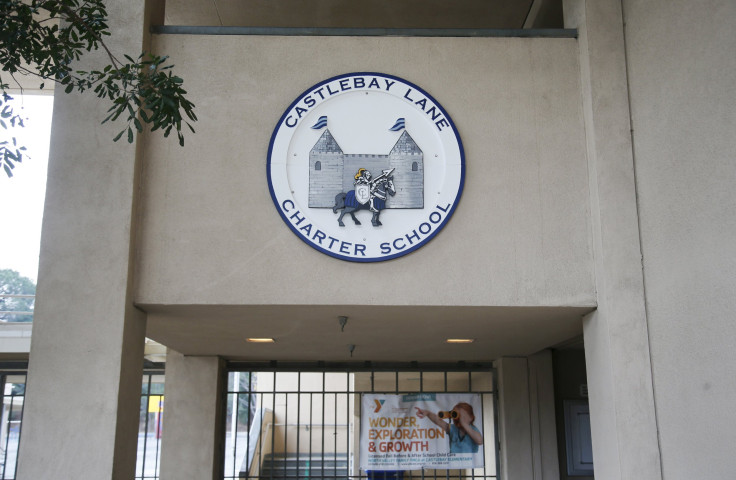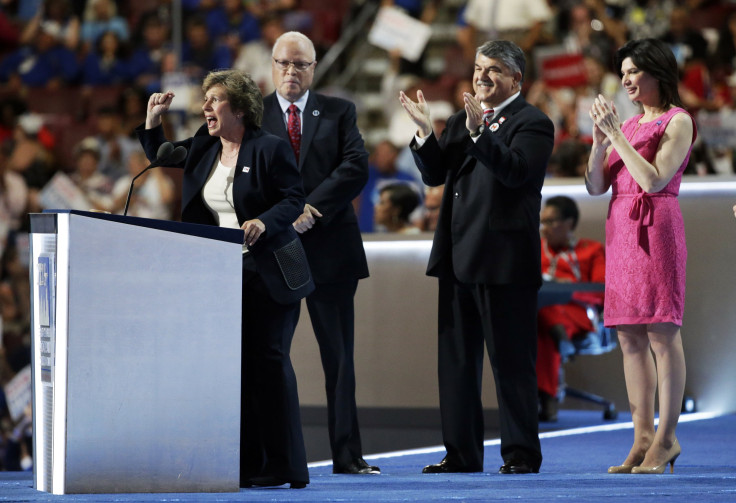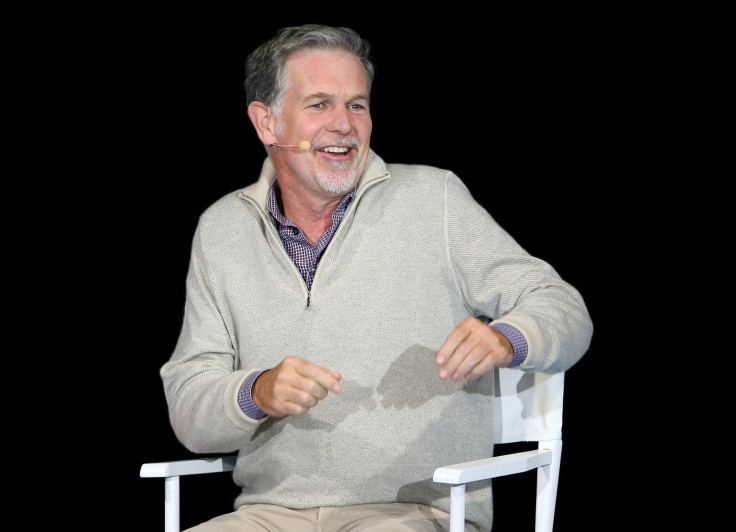Bernie Sanders vs. Billionaires In LA School Board Race That Shows Education Policy Battles

Sen. Bernie Sanders has been busy over the last few weeks on a unity tour with DNC chairman Tom Perez , but that hasn’t stopped him from wading into a local school board election. It’s the most expensive in U.S. history and may help decide one of the most important ideological battles roiling the Democratic Party — the battle over charter schools in education policy.
Sanders has endorsed two candidates running in this Tuesday’s Los Angeles school board race, which has pitted Democrats’ labor movement allies, who support traditional public schools, against prominent corporate moguls who have pressed the party to embrace privately run charter schools.
Read: Why Do Ivy League Schools Get Tax Breaks? How The Richest US Colleges Get Richer
“Billionaires should not make a profit off of public school children,” Sanders said in a statement. “That’s why I’m supporting Steve Zimmer and Imelda Padilla for the Los Angeles School Board. They will fight against the Trump/DeVos agenda to destabilize and undermine public schools.”
A longtime ally of the labor movement, Sanders is backing the two candidates who are supported by the local teachers union in a race that could shift control of the nation’s second largest school district. The Sanders candidates are opposed by attorney Nick Melvoin and teacher Kelly Gonez, who support charter schools and whose candidacies have been backed by millions of dollars from groups funded by (among others) Walmart heir Alice Walton, Netflix founder Reed Hastings and real estate magnate Eli Broad.
While the election is local, the outside money flooding into the race shows the stakes are high. The powerful Los Angeles Unified School District Board of Education oversees a school district with nearly 640,000 students and a $7.6 billion budget — in a Democratic city that has become a key battleground in the fight over whether to strengthen traditional public schools or move more of the public education system under private control.
Almost a quarter of Los Angeles school district students were enrolled in privately run charter schools, up from 17 percent in the 2011-2012 school year. Recently, though, there has been resistance from progressive lawmakers and unions, who have pushed legislation to subject charter schools to more transparency and scrutiny.
Amid the divisive battle and attack ads that have defined the race, the candidates on both sides of the divide told International Business Times they are surprised and dismayed by the amount of cash pouring into the election: more than $13 million in independent expenditures. That figure dwarfs spending by the candidates’ campaigns, which have spent only $1.7 million in total, according to the most recent campaign filings.
“I feel like I’m in a series of superhero movies where the budget in each film gets inexplicably higher and higher,” said Zimmer, who was first elected to the board in 2009 and who recently introduced a school board resolution to support “clean money” public financing of elections. “I was a teacher when I started this. I’m a teacher now. So the whole thing is completely surreal to me. There is no reasonable or rational explanation as to why so much money is being spent on this race.”
Gonez said the tidal wave of outside money has made it difficult for the public to have an honest debate about the issues.
“For voters, it’s just not fair,” she said. “They are not able to hear about the real differences between the candidates.”

California On The Front Line
Those differences over the direction of education policy reflect the larger schism in the education policy debate for the last decade. Battles over charter schools and “school choice” have taken place across the country in recent years and California has been ground zero. The state now has more charter schools and students in charter schools than any other, and was called the charter school “Wild West” by the Washington Post last year because its charters operate with “little if any accountability or transparency to the public.”
In advance of the Los Angeles school board elections, legislation was drafted to change that. In April, the board, led by Zimmer, voted 4-3 to fund lobbying in support of three teacher-union-supported bills in the California legislature that would pull charter schools into the light.
One of the bills would require charter schools to comply with the same open meeting and public disclosure requirements as school districts. Another would mandate that charter school admission, suspension and expulsion procedures comply with federal and state due process rules. The third bill would require charter schools to be approved by the local school district instead of state or county boards of education. (The California Charter Schools Association has lobbied on all three bills.)
These bills come less than a year after Democratic Gov. Jerry Brown vetoed legislation to increase charter school transparency; he vetoed a similar bill in 2014.
“Starting a charter school requires the strong commitment of dedicated individuals willing to serve on a governing board,” Brown wrote in a statement. “While I support transparency, this bill goes further than simply addressing issues of potential conflicts of interest and goes too far in prescribing how these boards must operate.”
The California Teachers Association argued the bill would have applied the same standards governing neighborhood public schools to charter schools.
“It is unfortunate that given all the reports showing fraud, waste, mismanagement and unequal access to students, Governor Brown would veto such important legislation that simply required the same standards of accountability and transparency that apply to all neighborhood public schools,” California Teachers Association President Eric Heins said in a statement.

The Local Races
The Los Angeles school board elections are a microcosm of the larger debate roiling the state.
In the District 4 race, Nick Melvoin, an attorney and former teacher, is seeking to unseat board president Zimmer, who has been the target of the California Charter School Association (CCSA), which has spent nearly $3 million on ads and fliers opposing Zimmer through a variety of associated groups. Those efforts included a full-page and front-page wrap ads in the Los Angeles Times on Sunday and Monday.
Good luck to @nickmelvoin in the Tuesday runoff election for LA school board! pic.twitter.com/95ztVmkBHI
— MarthaGroves (@marthaGroves) May 14, 2017
Outside spending in #LAUSD board race tops $10M. @SteveZimmer_4SB steps up fundraising but trails @NickMelvoin. https://t.co/5Xs2rDXXHp pic.twitter.com/w12jj7g01j
— LA School Report (@LASchoolReport) May 6, 2017
The Los Angeles teachers union backs Zimmer and has teamed with the American Federation of Teachers’ Committee on Political Education to fund a group called “Students, Parents and Educators in Support of Padilla and Zimmer for School Board 2017,” which has spent $500,000 attacking Melvoin and led to accusations of undisclosed spending. In District 6, charter school teacher and CCSA-backed candidate Gonez is running against union-supported community organizer Padilla for an empty school board seat in a race that has generated $5.4 million in outside spending.
Individual campaign contributions are capped at $1,100, but there are no limits to donations to outside groups making so-called “independent expenditures” for or against candidates.
While roughly $13 million has been spent by outside groups on the two races, Los Angeles’ last mayoral race in 2013 produced just $10.7 million in independent expenditures but more than $20 million in campaign contributions. In 2015, the district’s three most expensive school board races saw a combined $5.2 million in outside expenditures and less than $1 million in total campaign contributions.
Former Los Angeles Mayor Dick Riordan made a $1 million donation to a CCSA-backed group in January. GAP co-founder Doris Fisher chipped in $1.05 million. Members of the Walton family, heirs to the WalMart fortune who have spent millions on pro-charter school efforts, have contributed $700,000 to the CCSA’s political arm, CCSA Advocates, since September. Billionaire Eli Broad, whose foundation once developed a plan to move 50 percent of Los Angeles students into charter schools, has contributed at least $450,000 since November. Netflix Founder Reed Hastings has been the top contributor, according to the Los Angeles Times, contributing nearly $5 million to CCSA Advocates since September.

Spending by these outside groups, and their efforts to paint the candidates as either beholden to teacher unions or puppets of pro-charter school billionaires, has threatened to take the campaign from the candidates themselves and made it a battle between two powerful lobbies.
“It’s an awkward position for me,” said Gonez, a teacher and District 6 candidate who has benefitted from $2.4 million in independent expenditures on her behalf from the CCSA Advocates Independent Expenditure Committee and the CCSA-funded Parent Teacher Alliance. “I’m not involved with what they have done and who their supporters are.”
While the attack ads have sought to stress the ideological differences between the candidates, the gaps may be somewhat overstated.
For instance, although Steve Zimmer has been painted as an enemy of school choice, he has approved dozens of charter schools on his watch. And while the United Teachers of Los Angeles (UTLA) has tried to connect Melvoin and Gonez ( who were both endorsed by the Los Angeles Times ) to the educational policies of Education Secretary Betsy DeVos and the Donald Trump administration, both Melvoin and Gonez worked for the Obama administration and are opposed to school vouchers, a favorite policy among “school choice” advocates like DeVos.
Teachers unions have generally argued that whether in Los Angeles or other school board races focusing on charter schools, wealthy individuals are trying to use their private money to buy public education policy.
“If our opponents win this election, then the billionaire candidates will move more and more toward a two- or even three-tiered system, where some students will be served and some will not,” UTLA president Alex Caputo-Pearl told IBT.
By contrast, Melvoin argues that it’s the unions that have direct financial interest at stake in these elections, not the billionaires.
“I think we need to reform campaign finance in general, but there’s no way in this equation that Eli Broad, that Reed Hastings, are making money off of this investment,” Melvoin told IBT. “They give their money away to arts, to science, to education. If somebody could show me that giving me $1,100, or spending a million to elect a student-centered school board, that they’re profiting from that, then I’d be open to investigate. But it’s all political rhetoric.”
“These folks have been giving away their fortunes to non-profits and they see a school district that hasn’t been improving fast enough and they want to bring in some new blood,” Melvoin said.
© Copyright IBTimes 2024. All rights reserved.






















